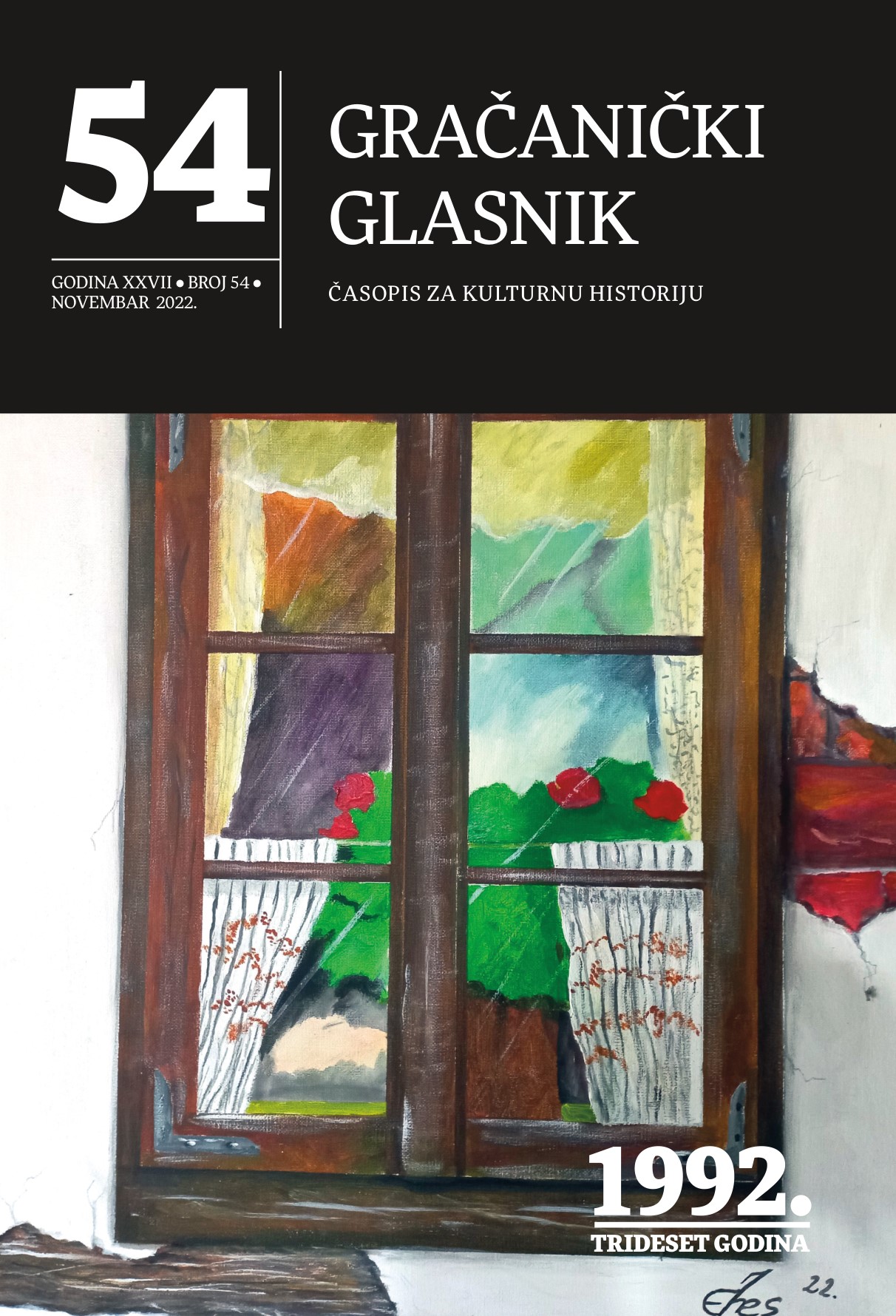Latif Karić – bosanski guslar
Latif Karić - a Bosnian fiddler
Author(s): Edin ŠakovićSubject(s): Customs / Folklore, Music, Oral history, Culture and social structure , Pre-WW I & WW I (1900 -1919), Transformation Period (1990 - 2010)
Published by: Izdavačka kuća »Monos« d.o.o
Keywords: Latif Karić; Vranovići; Gracanica; fiddler; fiddle; Bosniak folk epic; heroic songs; folk poetry; folk culture; folklore; tradition; intangible heritage; telling; oral history;
Summary/Abstract: The article provides information about Latif Karić (1905-1991) from the village of Vranovići near Gračanica, a widely known gusle player (guslar), but also one of the most respected locals, a man with a very interesting biography. He was born and grew up in an impoverished rural environment, in a village without an elementary school, but nevertheless he became literate and made considerable efforts in self-education. From an early age, he showed a gift for music and song, learning to play the saz, shargia, and then the gusle. As a guslar, he mainly performed old heroic epic songs. He performed at celebrations, parties, and social events in the wider surroundings of Gračanica, Srebrenik and Lukavac. Before the Second World War he also performed at night gatherings during Ramadan in a coffee house (kafana or kahva) in Gračanica. Besides being a guslar, he also was a reputed blacksmith, and a famous folk dentist. He was also considered a man of progressive views, an advocate of public enlightenment and education. He was one of the leaders of the campaign to build a school in the village in 1939 and 1940, which unfortunately did not succeed then, due to the resistance of other villagers. During the Second World War, he was among the respectable people from the wider area who strongly condemned robbery and looting, especially against the inhabitants of the neighboring Serbian Orthodox village of Gornja Lohinja, whose adult male inhabitants were arrested by the Ustashe and deported to concentration camps. From his youth until the end of his life, he faithfully maintained the tradition of gusle songs and Bosniak folk epics, as one of the last gusle players in North-Eastern Bosnia.
Journal: Gračanički glasnik - Časopis za kulturnu historiju
- Issue Year: 2022
- Issue No: 54
- Page Range: 235-260
- Page Count: 26
- Language: Bosnian

